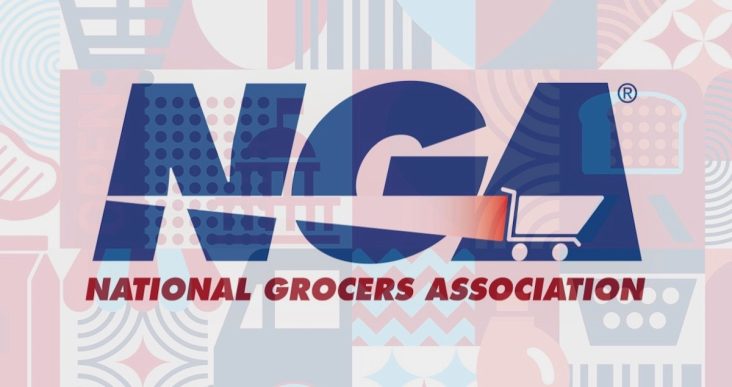FTC: Giant retailers, suppliers, wholesalers use pandemic to boost profits
by March 23, 2024 12:55 pm 566 views

A Federal Trade Commission (FTC) report finds that large food and beverage retailers posted income gains during the height of the pandemic and continue to do so, calling into question the notion that higher grocery prices are simply part of complex supply chain issues.
Federal regulators launched an inquiry in 2021 into large companies in the grocery retail sector that allegedly used their size to boost income and market share during the supply chain disruption and the impact that had on smaller competitors. The FTC released its findings Thursday (March 21).
The agency concluded that some large firms “accelerated and distorted” the effects of the supply chain log jam, by pressuring suppliers to give them favor over competitors. The retailers named in the report are Walmart, Kroger and Amazon. The food companies named were Tyson Foods, Kraft Heinz and Procter and Gamble. The report also examined grocery wholesale giants C & S Grocery Wholesalers, McLane Company and Associated Wholesale Grocers.
“Dominant firms used this moment to come out ahead at the expense of their competitors and the communities they serve,” FTC Chair Lina Khan noted in the report.
While the FTC said revenue growth at grocers outpaced the cost increase many of them faced from suppliers, the report fell short of investigating whether specific companies increased their prices by more than their costs. The FTC said their findings “warrant further inquiry by the commission and policymakers.”
The report comes as economists say consumers are still paying elevated prices for food. Retailers have said inflation remains stubborn in food and beverages, particularly packaged foods. Commodity prices for dairy, meat and fresh fruits and vegetables are down from pandemic highs in most cases, according to a recent report from the U.S. Bureau of Labor Statistics.
Walmart did not respond to a request for comment, but the retail giant has repeatedly said it works with suppliers to lower food prices, including its own private brands. Walmart U.S. CEO John Furner said this week that food inflation remains stubborn and consumable prices have not come down to pre-pandemic levels like many of the general merchandise categories.
Springdale-based Harps Food Stores also didn’t respond to a request for comment. Harps CEO Kim Eskew is on the board of the National Grocers Association who did applaud the findings. NGA President and CEO Greg Ferrara said independent grocers and their customers experienced firsthand that dominant national chains, or so-called “power buyers,” are abusing their immense economic power to the detriment of competition and American consumers.
“The FTC report concluded ‘limited competition’ can lead to bottlenecks that increase the impact of supply chain shocks on different businesses and consumers while simultaneously creating opportunities for further entrenchment. … As supply chains normalize, some of these symptoms may subside, but the underlying issues remain,” Ferrara said.
The report cited retailers like Walmart and Kroger required suppliers to ship orders in full and on time or risk being fined but also said some retailers briefly suspended the fines. Walmart did suspend its fines through the summer of 2020 but returned to the fines when competitors did not waive fines.
Tyson Foods was one of the three named food companies in the report that benefited from size during the pandemic. The Springdale-based meat giant did not respond to a request for comment. Tyson said its input costs rose too with a 20% increase in the cost of live cattle, and higher costs for freight, grain, and labor. Also in 2021, Tyson settled multiple class-action suits for $221.5 million, while admitting no liability for the price-fixing claims in its chicken segment between 2008 and 2012, well ahead of the pandemic.
During the pandemic, Tyson also said it spent more than $810 million in protective equipment and technology to better manage the Coronavirus and keep its employees protected. More recently, the company reported challenged financial results from lower prices in beef and pork while chicken prices remain high.
The federal agency concluded that the pandemic placed tremendous pressure on supply chains that produce and move the nation’s food from farm to table. The report said large retailers and wholesalers with considerable leverage over their suppliers were able to take more aggressive action to protect themselves than were their smaller rivals.
“The supply chain disruptions during the pandemic provided insight into the competitive dynamics of the grocery industry. Limited competition can lead to bottlenecks that increase the impact of the supply chain shocks on different businesses and consumers while simultaneously creating opportunities for further entrenchment,” the report noted.
The FTC discussed at length how the companies in the report had grown through acquisition to their giant sizes Five of 17 pages in the main report were dedicated to growth through acquisition.
The report also comes as the FTC seeks to block Kroger from its $25 billion acquisition of Albertsons. In that litigation, the FTC argues that the deal would weaken competition and lead to consumers paying higher prices.
Link here for a PDF of the FTC report.
